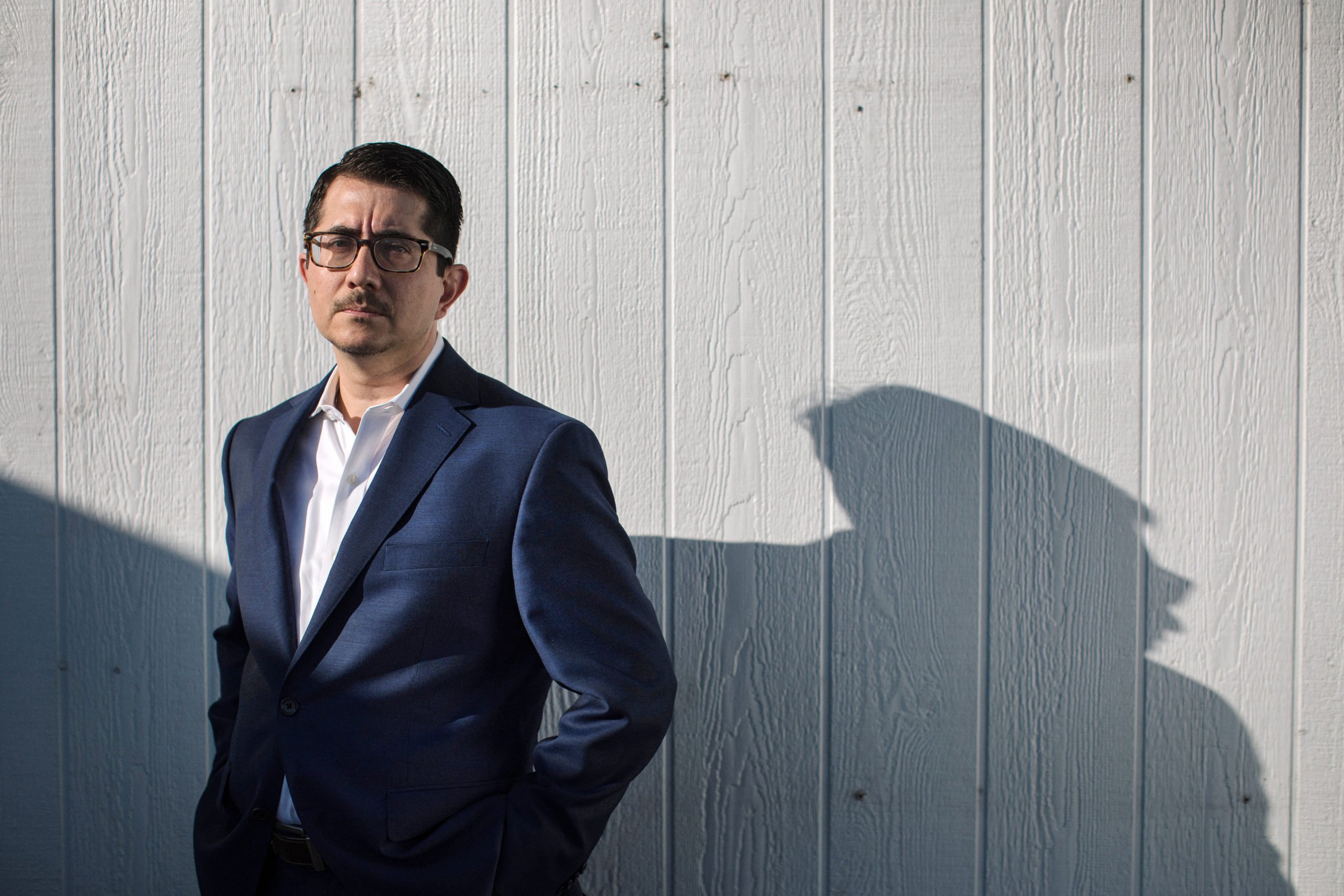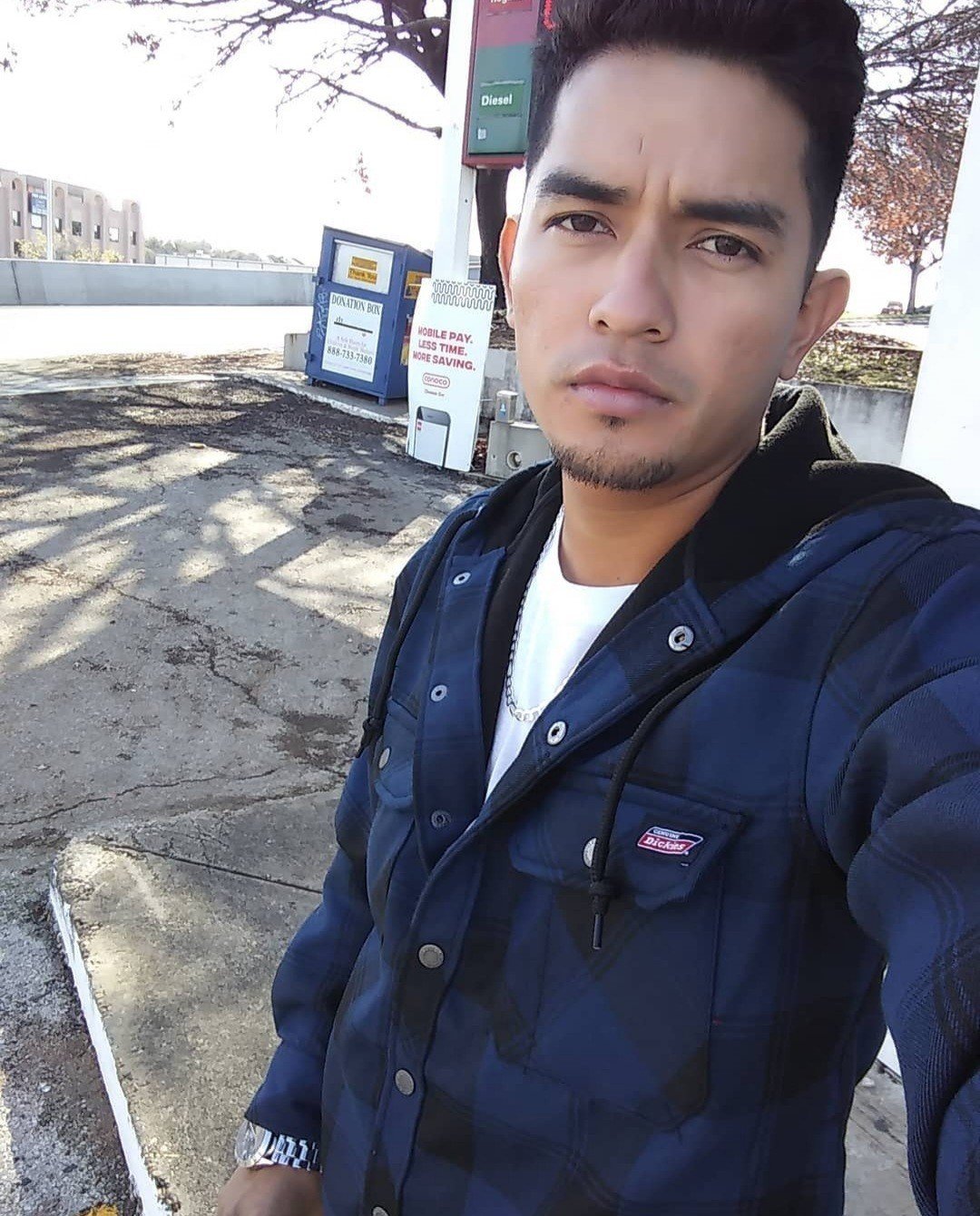Three years and three months ago, Rosa Isela Batalla Morales learned that her son had been buried alive.
“My husband got a call,” she recalls. “I don’t know exactly what they said to him, but they told him that there had been an accident, a collapse, and my son was the one who had been buried completely … had disappeared into the earth.”
On October 23, 2021, 24-year-old Juan José Galvan Batalla and another worker employed by D Guerra Construction, LLC, were installing a residential wastewater line for a new subdivision in far South Austin. The 13-foot-deep trench they were working in partially collapsed, and they immediately notified their supervisor. No one was hurt. Hours later, according to the federal Occupational Safety and Health Administration (OSHA), they were told to return to work in the unprotected trench, and it collapsed again, burying Batalla and his colleague in soil and debris.
The day of the collapse, Morales learned her son had been pulled out and was being transported to a hospital. Morales lives in nearby Bastrop, but “That day, well, I think that God arranged things, because we happened to be in Austin, so we got there without delay,” she told the Texas Observer in Spanish over a December phone call. The other buried worker sustained serious injuries, but survived. Batalla spent a week in the hospital before dying on October 30.
“They told me right away that he was brain dead,” Morales said. When she arrived at the hospital, he was having convulsions, but he eventually calmed. “After that point, if someone talked to him, he cried, there were tears, so I want to believe that he could hear us when we told him that we loved him and we said goodbye to him.”
Now, Morales may receive what few mothers in her place do: some measure of justice from the legal system. In an extremely rare move, a Texas grand jury has indicted D Guerra Construction and Project Superintendent Carlos Alejandro Guerrero for criminally negligent homicide, a state jail felony, for the death of Batalla in 2021.

“The loss of this worker’s life was preventable and the employer must be held responsible,” said OSHA Area Director Casey Perkins in a November statement. “Despite a partial trench collapse earlier in the day, D Guerra Construction LLC recklessly sent employees back into the excavation without protective measures to prevent another cave-in.”
OSHA opened an investigation into the incident after receiving a late hospitalization notification from D Guerra Construction on October 25, 2021, the agency said. By law, employers must report workplace hospitalizations within 24 hours. OSHA ultimately cited the company for willfully “exposing employees to a cave-in hazard,” among other safety shortcomings, and fined the firm $140,000. In June 2022, OSHA referred Batalla’s case to Travis County District Attorney José Garza’s office for possible criminal prosecution.
“Nothing will bring my son back to me … but it does help to keep other people from suffering, and to make employers take responsibility.”
In December 2023, OSHA again cited the same construction company for exposing workers to another possible trench cave-in and, yet again, a month later for a different excavation-related issue.
It’s a common pattern for companies to receive multiple OSHA citations without changing behavior: An investigation by NPR, TPR, and the program “1A” last year found that at least 10 companies whose workers have been killed in trench collapses nationwide over the last decade had been cited previously by OSHA for flouting safety standards—one of them five times in four years.
Trench collapses are often immediately fatal, as one cubic yard of soil can weigh 3,000 pounds and fall in seconds, leaving workers no time to escape. But the employer is almost never held accountable for these deaths. Of 250 trench collapse deaths that occurred between 2013 and 2023, the NPR investigation found, at least 20 happened in Texas. Only 11 employers were criminally charged over that period, none of whom were in Texas. In every instance, OSHA determined that the deaths were preventable had safety precautions been taken.
Jordan Barab, former deputy assistant secretary for OSHA from 2009 through 2016, told the Observer these deaths are “completely inexcusable, adding that “the rules that OSHA has issued for preventing trench collapses are very clear, very doable—there is probably no construction company in the country that doesn’t know how to prevent trench collapses.”
It’s not a question of knowledge, but rather will: Barab said companies may not want to put in safety measures, like steel trench boxes that keep the walls from caving in, because they involve more time and money.
Even when employers receive fines, OSHA’s penalties are not high enough to deter “even the smallest of companies,” said Barab, maxing out at around $16,000 for a serious violation. The highest penalty is for a willful violation—when the employer purposefully disregarded the law or acted with “plain indifference to employee safety.” D Guerra Construction was cited and fined for the latter type.
Usually, if OSHA can prove that a worker’s death was a willful violation, they refer the case to the U.S. Department of Justice for federal criminal prosecution. The problem is that even if they secure a conviction, Barab said, it’s often a misdemeanor. “So what happens is, very often, the Justice Department says, ‘Why would we go through all this trouble and expense and resources?’—in other words, the criminal prosecution language in the Occupational Safety and Health Act is very weak,” he said.
OSHA doesn’t have the resources nor the teeth to effectively scare employers who flout safety standards—or even identify them. There are currently fewer than 2,000 inspectors in the nation, and Barab said “If OSHA were to inspect every workplace in the country just once, it would take them 185 years.” Plus, “The likelihood of an OSHA inspector ever happening to drive by any of these tiny sites tucked away in suburban neighborhoods is close to zero.”
Compared to the Justice Department, local prosecutors like Travis County’s Garza are more likely to be able to secure a stronger conviction that could deter employers from endangering their workers in the future, Barab said.
In 2021, Garza’s office launched its Economic Justice Enforcement Initiative to focus on wage theft and other work-related crimes; the Batalla case is its first indictment of a corporate entity for unsafe working conditions. “When employers engage in criminal conduct and expose their employees to hazardous working conditions, this office will hold them accountable,” Garza wrote in a press release about the case.
Criminal negligent homicide is a felony in Texas, but it has rarely been used to convict companies. In 1987, Travis County Attorney Ken Oden became the first Texas prosecutor to secure a negligent homicide conviction (at the time a Class A misdemeanor) against a corporation for a worksite death, according to Oden in contemporaneous news reports. The convictions were for the deaths of Juan Rodriguez and Benjamin Eatmon—who were “laying pipe in a 30-foot pit in East Austin when the dirt walls of the pit collapsed,” as reported then by the Observer—and of Margarito Maldonado, who died in another cave-in while installing the Govalle Wastewater Treatment Plant.
The company involved in Rodriguez and Eatmon’s deaths received a low OSHA fine and committed repeat violations, the Observer reported at the time, echoing Batalla’s case today.
At the time, Oden told the Observer in a January interview for this story, OSHA viewed his prosecutions skeptically. “They were certainly not helpful, and there was some degree of hostility toward it. They regarded it as meddling, because the initiative to prosecute was based in part on our conclusion that if we didn’t take action, no meaningful action was going to be taken,” he said.
Through the appeals process, Oden’s case would go on to confirm the right of states to engage in such prosecutions. Now, OSHA is much more collaborative with local entities; in the case of Batalla’s death, DA Garza took up the case from an OSHA referral.
Oden said he was pleased to see Garza take action. “I’m proud of our local DA for proceeding on cases like this and taking up the cause that we had tried to promote 40 years ago,” he said, “because it hasn’t gone away. The proof is in the pudding: If you don’t keep an enforcement regimen that everyone understands and is aware of, the system will fall back into old patterns.”
According to court dockets, pretrial hearings are set for February in the cases against D Guerra Construction and Carlos Alejandro Guerrero. Guerrero was arrested and released on October 23, on a $10,000 personal recognizance bond, per the Travis County Sheriff’s Office.
The lawyer representing Guerrero, Scot Courtney, told the Observer, “To determine the facts of the case and to determine whether or not an individual is going to be criminally responsible for an accident should be done in front of a jury,” and he declined to give further comment. John James Pousson, in-house counsel for D Guerra Construction, did not respond to a request for comment by press time.

Morales, Batalla’s mother, told the Observer she always believed her son’s death was more than bad luck. “In my mother’s heart, I never accepted that it was an accident. Something in me always said that they didn’t look after him,” she said.
“I know it may not have been what they wanted, but it is what happened, so there is responsibility, there are consequences. Nothing will bring my son back to me … but it does help to keep other people from suffering, and to make employers take responsibility for the lives of the people they are in charge of. Because for the family, especially for moms … a piece of your life leaves with your children.”
Batalla was a “very cheerful, sociable” young man, Morales said, a beloved sibling and a hard worker. “When the accident happened, he and I were at [Austin Community College] starting to study English, the two of us, to see who could learn it the fastest.”
Morales urges other workers like her son to stand up to their employers when asked to do something dangerous: “When they are on the construction site, at work, they should assert their rights,” she said. “To put food on the table, to support their families, they don’t mind putting themselves at risk—they say, ‘Oh, don’t worry, I’m just going down there for a minute,’ but that’s all it took for my son to be gone, one second.”
Though it’s a slow process, she hopes the criminal cases will show families that there are laws to support workers. “Maybe not in every case, not every time—it takes time for the law to catch up,” she said. “But there is justice.”
Editor’s Note: This story has been updated to correct where within the Austin area the 2021 trench collapse occurred. The Observer regrets the error.







